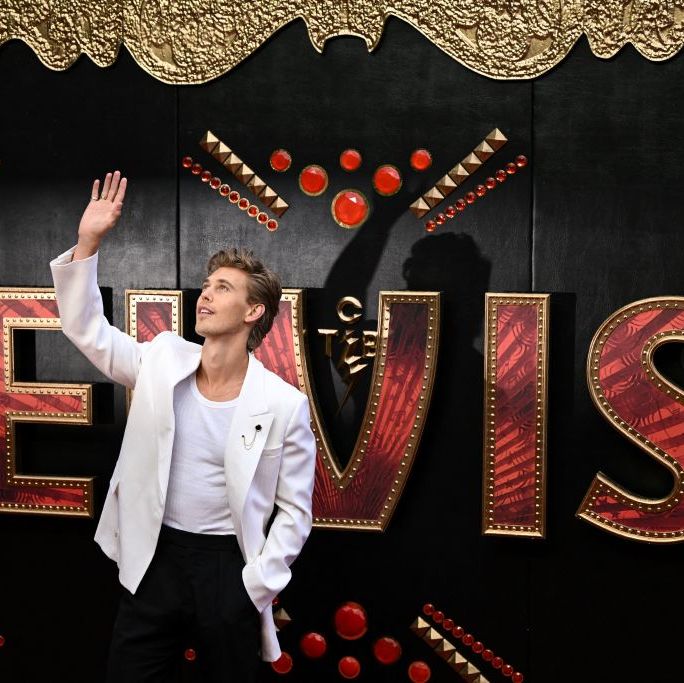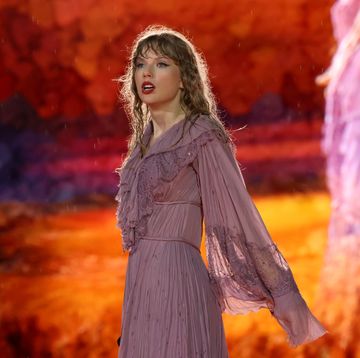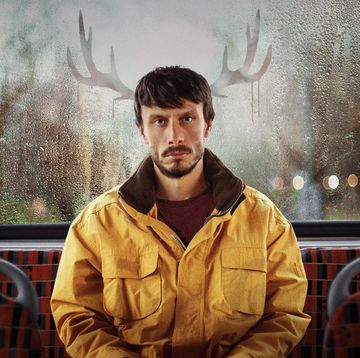When the first images of Timothée Chalamet playing Bob Dylan in upcoming A Complete Unknown were released earlier this week, it set the internet alight. Chalamet was pictured carrying a guitar in a baker boy hat, prompting a swathe of 'memeable' comparisons to an eclectic range of figures including Keira Knightley’s character in Love Actually (he does look quite pretty, actually) and a cartoon mouse named Fievel Mousekewitz.
Luckily for Chalamet, the response to his transformation has been far more light-hearted than the reaction to actor Marisa Abela's portrayal of Amy Winehouse in the upcoming biopic Back To Black, which was memorably mixed. While some fans and critics praised the actor’s resemblance to the late singer-songwriter, others were less convinced; ‘Marisa Abela looks nothing like Amy Winehouse’ read one damning tweet. The British actor has put pay to sceptics this week, however, hitting headlines for saying that feeling ‘frailer and smaller’ helped her to fully embody the complex role.
Whatever your stance, one thing is abundantly clear: we can’t get enough of biopics about musicians. The month alone has welcomed the release of Bob Marley: One Love, and the last few years have seen Elvis Presley and Whitney Houston depicted in Baz Luhrmann’s Elvis and I Wanna Dance With Somebody, respectively. Before that, there was Rocket Man, Bohemian Rhapsody, Straight Outta Compton, Walk The Line – the list goes on.
As well as major box office and musical success (in 2018, Bohemian Rhapsody grossed nearly $100M and brought the genre-defying track back into the charts for the first time since 1992), these dramatisations of real-life figures hold particular sway over the collective consciousness. They fill news feeds and social media timelines and never fail to attract acclaim – as well as debate. But what’s behind our insatiable appetite for this ever-popular genre?
FIND OUT MORE ON ELLE COLLECTIVE
Perhaps the most obvious reason is that they bring our favourite musicians to life, which is especially potent if they are no longer alive. The resemblance between actor and artist can often veer into the uncanny, especially when elements of method acting are involved, as Abela discussed in her description of physically shrinking herself to play the role of Winehouse. Austin Butler has revealed that it took the help of a dialect coach to help him stop sounding like Elvis, whose distinctive voice he reportedly spent three years perfecting for his role in the 2022 biopic.
The genre also invariably features the artist’s most beloved songs, with a killer soundtrack almost guaranteed. In a cultural landscape dominated by remakes and reboots, in which Noughties music is returning to the charts (just look at the Saltburn effect on Sophie Ellis-Bextor’s ‘Murder on the Dancefloor’), biopics might be valued so highly because they tap into our need for nostalgia and love of the familiar.
But they also offer something novel, granting access to the elusive world of celebrity, which is particularly interesting for figures who were famous before the pervasive, all-access influence of social media. ‘We know that people are really interested in the “star persona” – the idea of the person behind the music and performance,’ says Professor Nicola Dibben, an expert in the science and psychology of music.
‘The pop/rock music industry is constructed on this idea: the star persona is the thing that holds together all the different elements (music, merch, events etc) that make up their work. From a fan perspective, the biopic offers another opportunity for a form of contact with the artist, deepening the understanding of that person’s artistic output.’ In this sense, biopics provide the space for an extension of fandom, even though they often have fictional elements as well as a real-life narrative.
But as well as celebrating the success of an artist, the films also serve to humanise public figures and explore their vulnerabilities and struggles, often exposing the perils of fame. ‘Biopics offer a glimpse into the lives of larger-than-life people and allow audiences to connect with their stories and understand them more,’ says Lawrence Montgomery, Managing Director of independent record store Rough Trade. ‘We’re often given insight into struggles with loneliness, addiction, mental health, and difficult relationships.’
It could easily be argued that there are too many biopics, or that they happen too soon after the life of the artist ends – particularly pertinent in the case of Back To Black (Winehouse passed away in July 2011) – or while they’re still alive. It’s little surprise they attract a fair amount of scepticism from die hard fans and casual viewers alike.
Nevertheless, the biopic highlights the incredible talent of both the artist being portrayed and the team behind the film portraying them, from the actor to the casting director to the production team. Personally, I just hope I live long enough for the Taylor Swift biopic(s) undoubtedly heading our way.
ELLE Collective is a new community of fashion, beauty and culture lovers. For access to exclusive content, events, inspiring advice from our Editors and industry experts, as well the opportunity to meet designers, thought-leaders and stylists, become a member today HERE.














